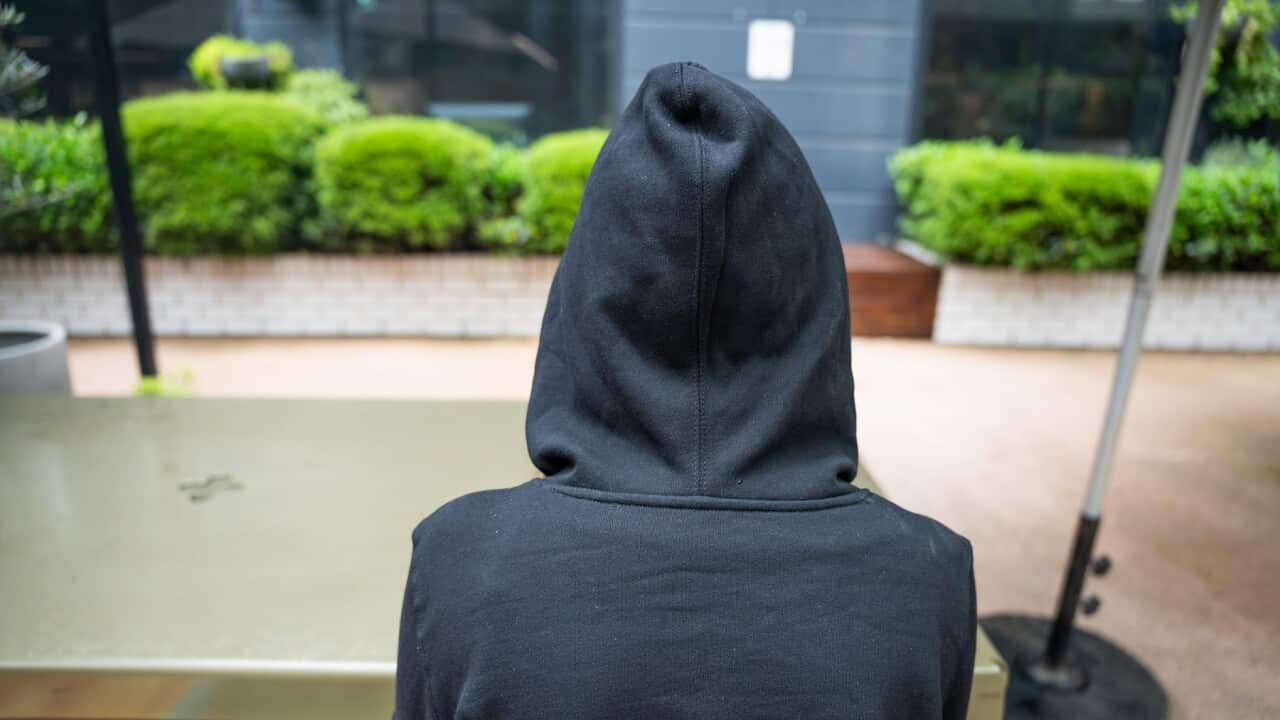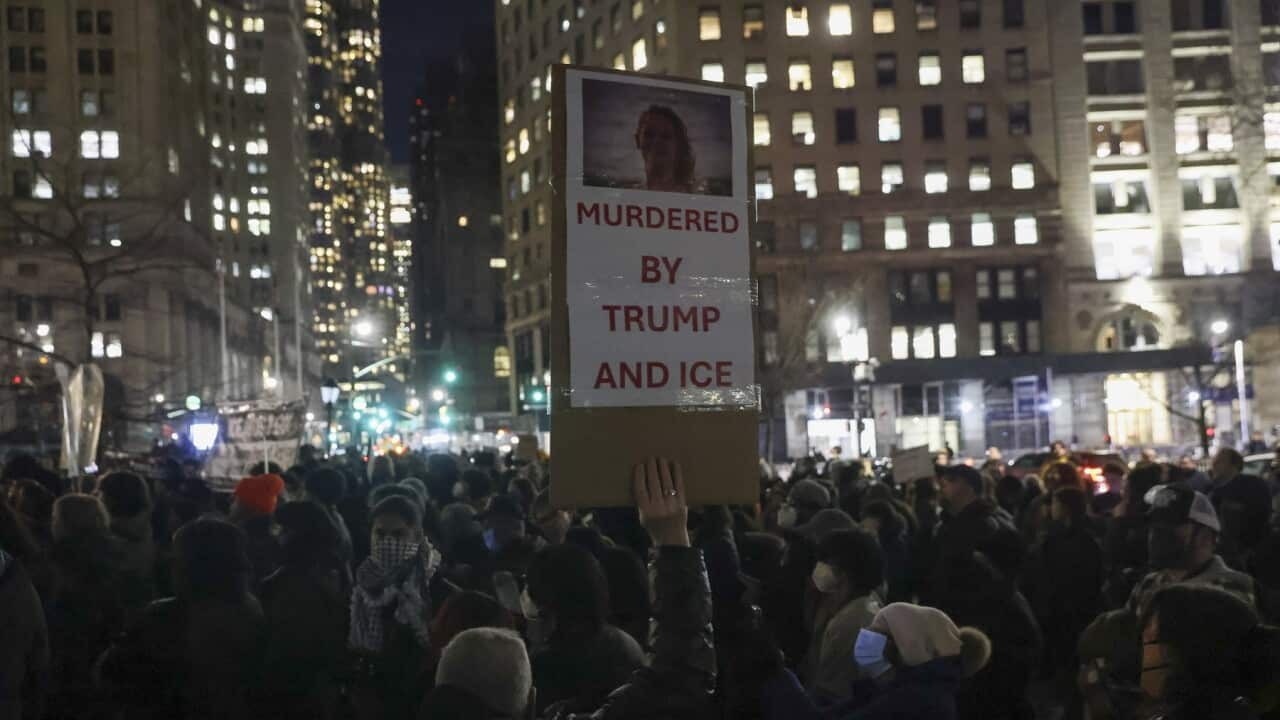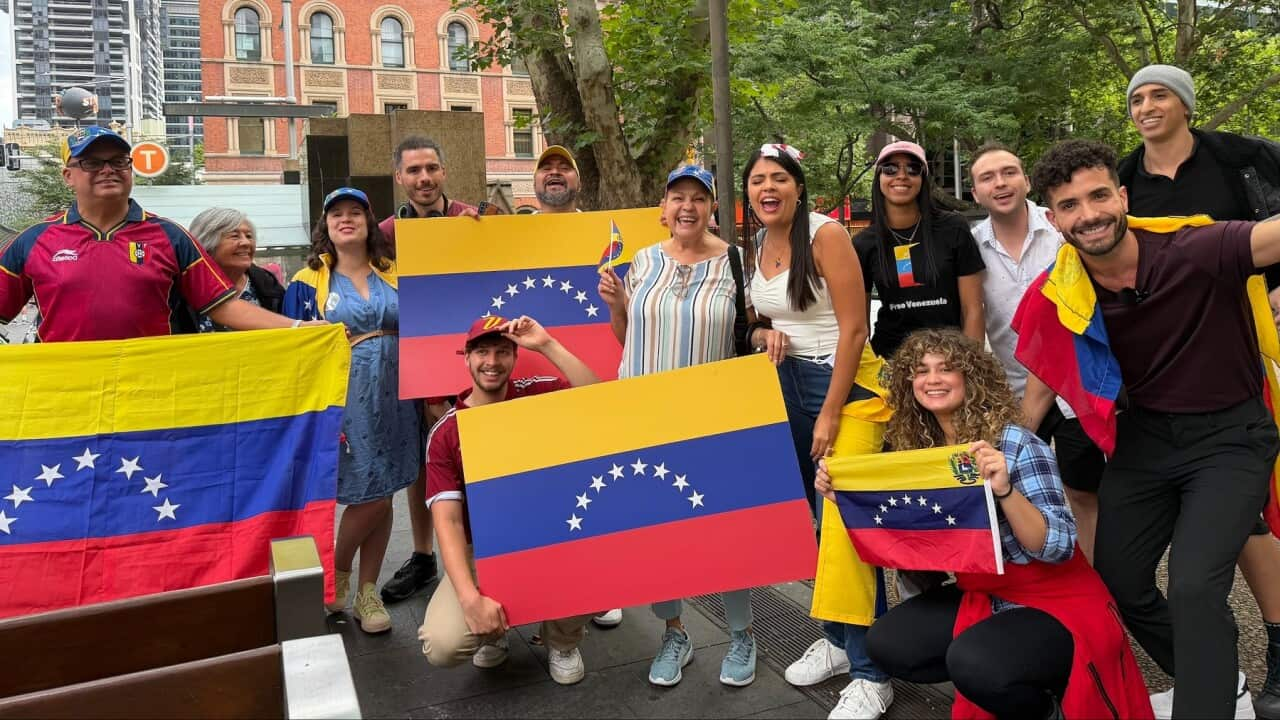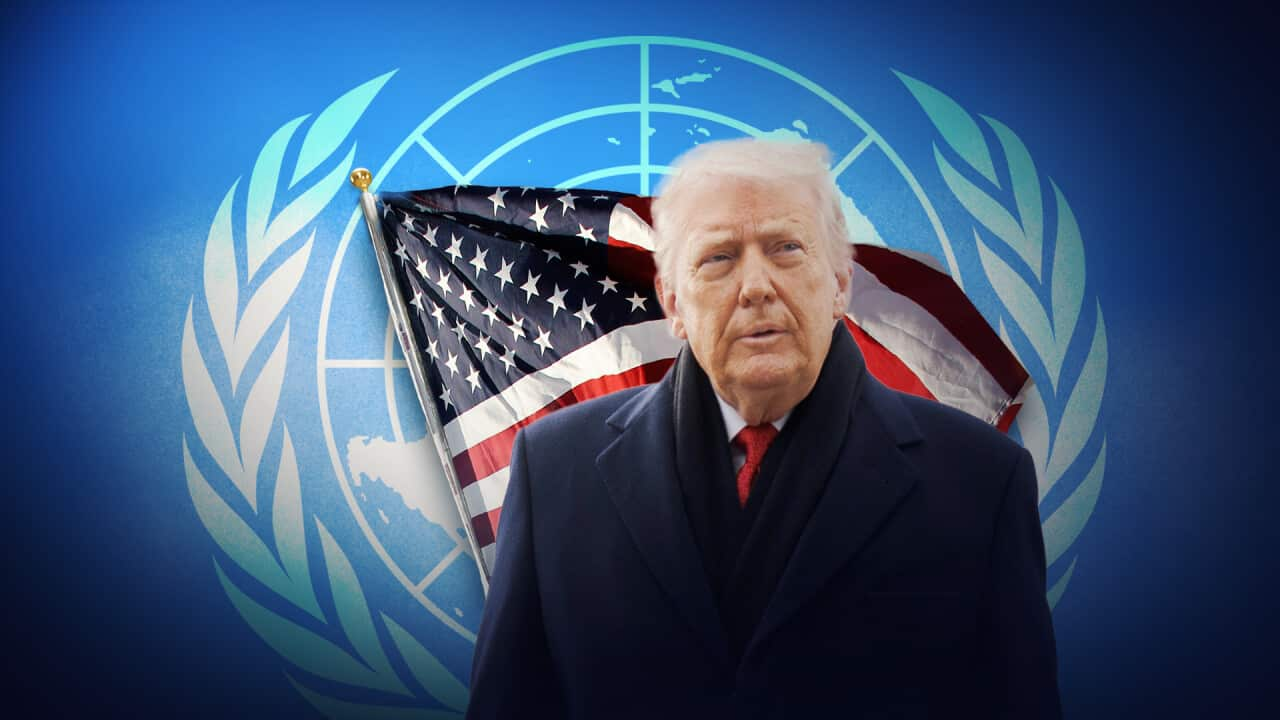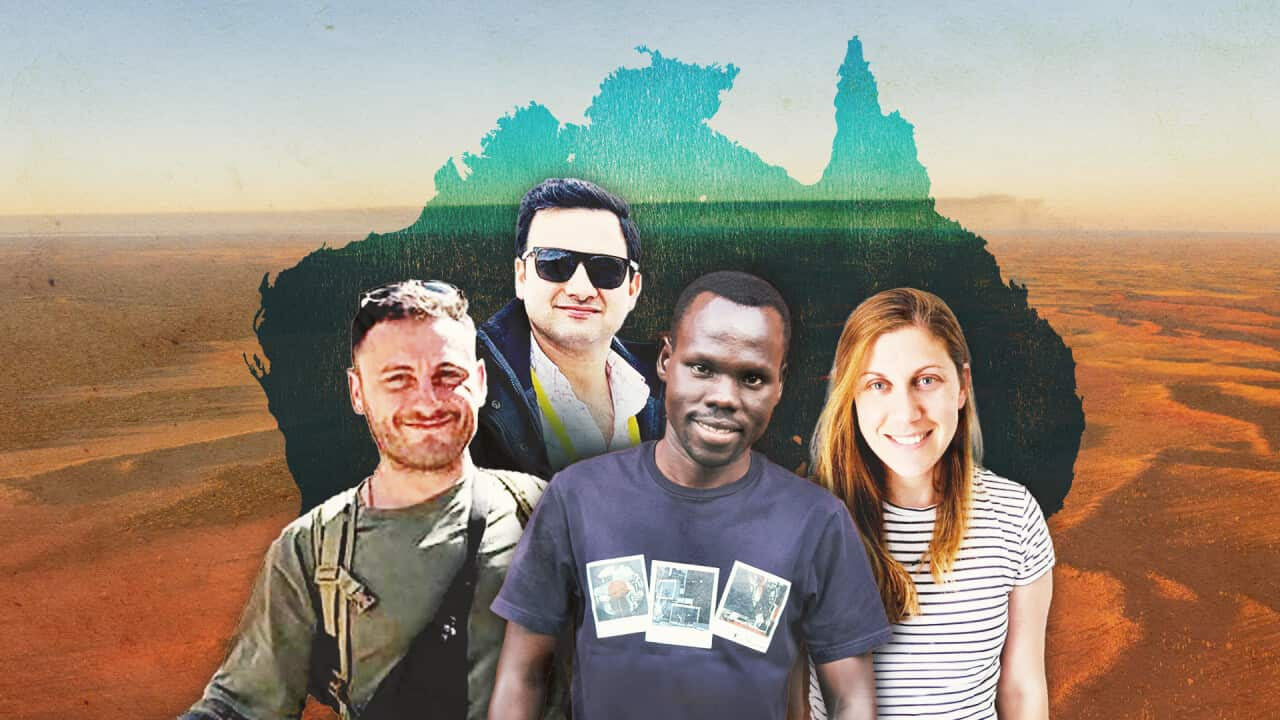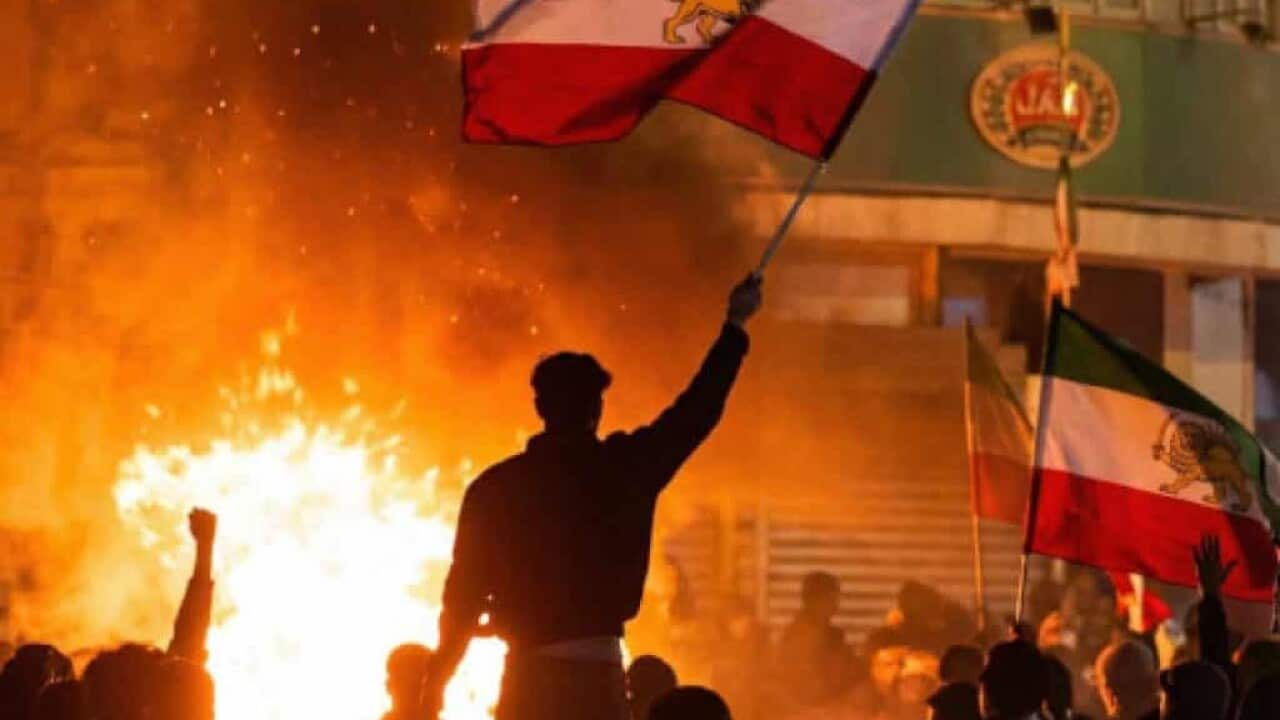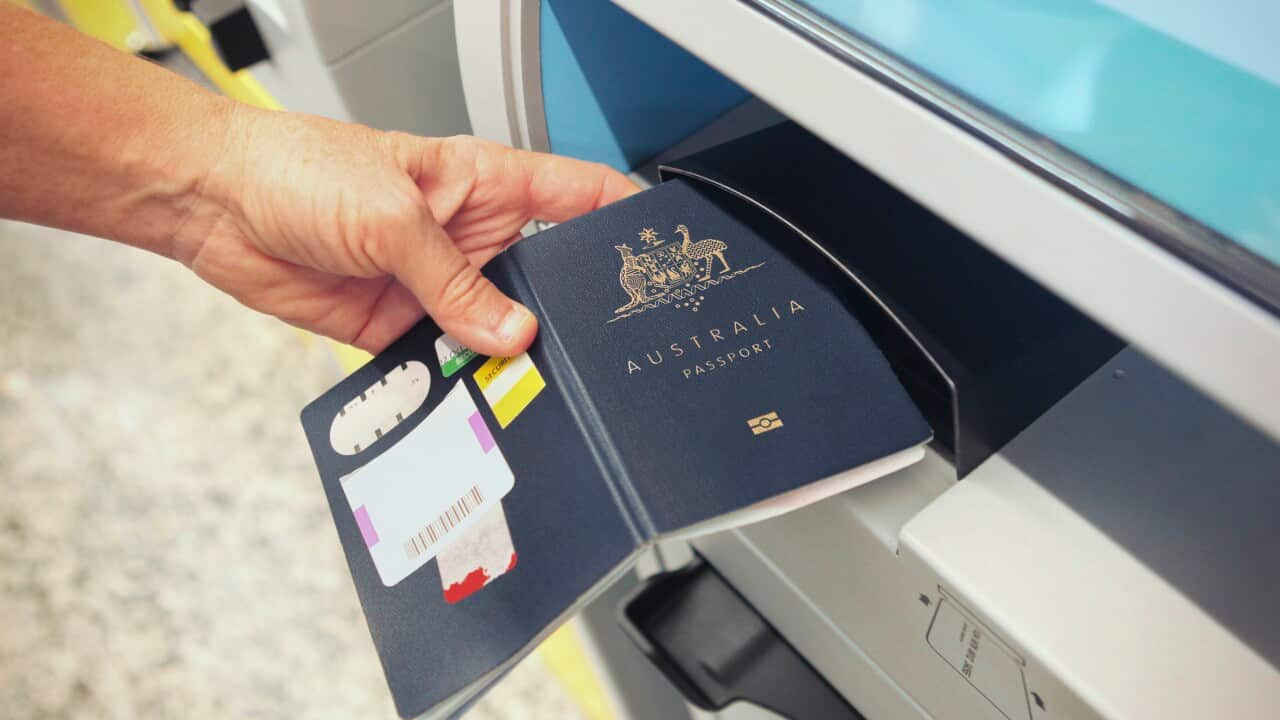Listen to Australian and world news, and follow trending topics with SBS News Podcasts.
TRANSCRIPT:
Creating colourful fabric is a focus for Sisterlay Toe, who’s part of a weaving group in Perth.
"Clothes I make by myself when I wear them, I feel like I'm happy, and proud of myself that I made the clothes."
Ms Toe is among 15,000 Karen in Australia.
Like many, she fled conflict in her homeland, Myanmar.
"Because the military came to our village very often, they wanted to destroy, burn down the house. Sometimes also looting and killing. We can't live there anymore, so we moved to Thai refugee camps."
The Karen are a large ethnic group in Myanmar, and weaving is central to their cultural identity.
However, civil war following a military coup in 2021 has forced thousands to flee.
Many struggle to survive harsh conditions in camps along the Thai border.
Mu Lay SongSaeng explains.
"Karen people who are living in refugee camps and facing lots of problem at the moment, due to the food shortage and also the healthcare services. There is still lots of needs."
With limited access to work many families barely subsist, but returning to Myanmar is too dangerous.
Thousands of civilians have died in recent conflict and agencies estimate around 30,000 were detained.
A United Nations report released this week, drawing on more than 1,300 sources, also documents what it calls ‘systemic torture’ over the past year.
Dr Graham Thom is advocacy co-ordinator at the Refugee Council of Australia and recently back from a fact-finding mission.
He says conditions for Karen communities in refugee camps are becoming dire.
Cuts to international assistance, including USAID, are impacting food security.
"There's nine camps on the Thai Burma border with over 100,000 people. They're totally dependent on aid. And so when there are significant cuts to aid, this has created incredible hardships for the people in the camps. The Karen are one of those groups that are particularly suffering."
Many Karen, including Mu Lay SongSaeng, have sought safety elsewhere, including Australia.
"I was so excited and so happy to come to Australia, because I knew that if I come to here there will be more freedom. We don't need to be afraid of anything. Whatever we want to learn, we have nothing stop us from going to school."
However, like many Karen, Ms SongSaeng fears traditional Karen skills like weaving are in danger of being lost.
So, two years ago she revitalised a weaving group in the Perth suburb of Mirrabooka.
"It's a really important pathway to healing because we are from a refugee background and we have some lots of trauma."
Each week, a group of Karen women meet to work on their creative designs.
"Back in our culture, blue, red and white is the famous colour. Red represents bravery. Every Friday this room comes alive, it's full of fun, joy. They produce really nice crafts and we also sell some of our product and they can get some of their income."
As it has been for centuries, Karen cloth is made on hand-held looms carved from recycled timber.
Ms SongSaeng says some is collected from the roadside.
"We just use whatever around our environment, we use like whatever we have, bamboo, wood, and then our elderly men make it into the shape."
Skills are passed from mother to daughter, so Ms Toe says weaving cloth helps Karen women to celebrate and preserve their unique cultural identity.

